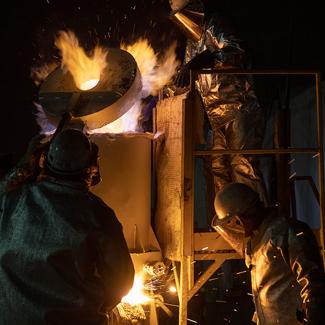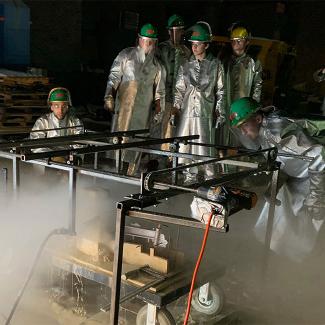What you'll learn studying Metals Processing Technology at UW-Platteville
Virtually every product manufactured, all foods processed from the field to the store shelf, every fiber made into clothing, and more, will require some type of metal or machine to process and manufacture the product.
As a program offered by the University of Wisconsin-Platteville’s Department of Applied Engineering Technology Management, the metals processing technology minor explores the various properties of metal, different varieties of metal, and basic processes to shape, mold, cut, weld, and process metal components. In this metals processing program, you’ll gain hands-on experience through our labs and interactive classes, as well as student groups like our award-winning American Foundry Society Club.
Review the degree requirements for the metals processing technology minor to learn more.
Careers in Metals Processing Technology
Metal workers transform different types of metals into a variety of products. Machine workers set up and operate the equipment needed to form metal products. These machines include cutting, punching, drilling, boring, grinding, heat-treating, molding, rolling, welding and soldering machines, and many others. Metal processing workers also refine and smelt metals and create metal alloys.
Studying metal forming and casting will prepare you for a variety of rewarding careers. Some of the roles you can pursue with this minor include:
- Estimator
- Machinist
- Metal and plastic machine worker
- Metal assembler
- Metal fabricator
- Patternmaker
- Pourer/caster
- Production assistant
- Production engineer
- Scheduler

Discover by doing
Studying the metal casting process at UW-Platteville provides exciting opportunities to practice what you learn, both inside and outside of the classroom. Internships, research projects, and university events provide you with real-world, hands-on experiences that will help you seamlessly transition from college to career.






